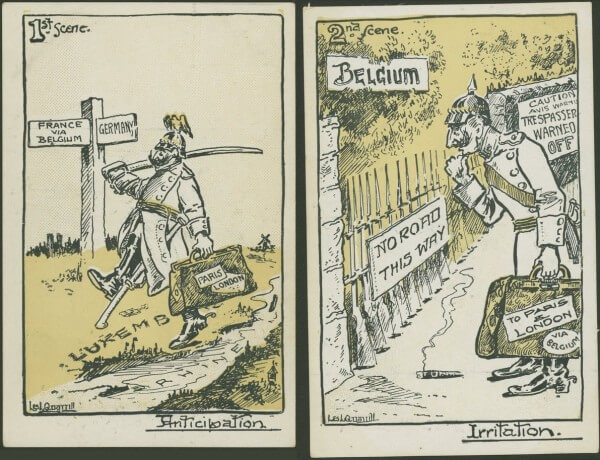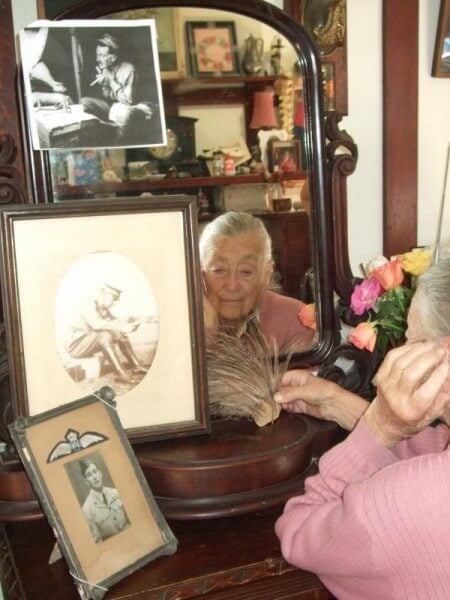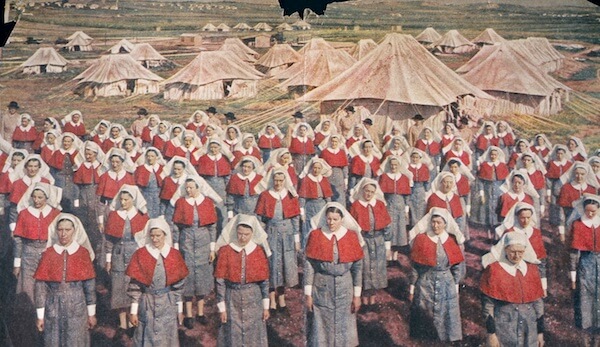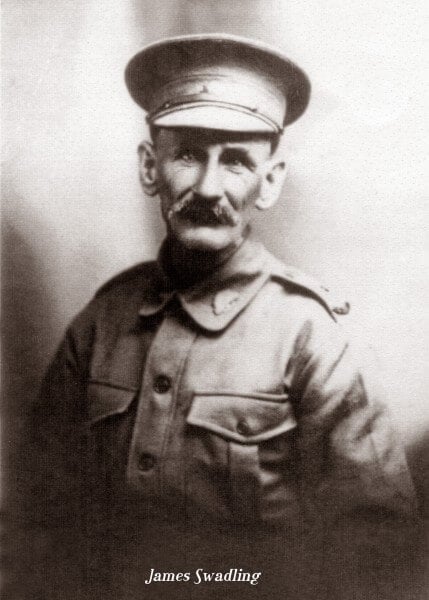
A Card from the Front
You may not be able to say a lot on it but it could say a lot on its own. During the Great War 1914-1918 postcards often carried sentimental or patriotic messages designed to promote nationalism, encourage enlistment and demonise the enemy.
Sending postcards was hugely popular during the war. Millions were sent between home and the frontlines. Most armies issued "field postcards" that contained minimal information on the sender’s health and well-being and which could usually be sent at no cost to the soldier. At home, postcard artists captured the spirit or sentiment of the nation, either in humour or with an astute political observation.
The State Library of Victoria has a wonderful series of six postcards by Les Quarrill that each depicts “a day in the life” of Germany’s Kaiser Wilhelm II from war’s beginning to end. “Anticipation” is the first card in the series. It depicts the Kaiser marching toward Belgium. In the second card, “Irritation”, he stands at the Belgium border.
Belgium was a major factor in shaping the war. The sequence of events following the assassination of the Austro-Hungarian Archduke, Franz Ferdinand on 29 July 1914 had brought into play a complex web of treaties and pacts between various European states. Russia was allied to Serbia which had plotted the assassination. Germany was allied to the Austro-Hungarians.
Soon Russia and Germany were toe to toe. But Russia was also closely allied to France (the Franco-Russian Alliance). The German Chancellor had told the British Ambassador in Berlin that Germany was ‘contemplating’ war with France, and added that if it did go ahead Germany would like to send its Army through Belgium. Germany wanted Britain to remain neutral.
Only days later Germany asked France to remain neutral in the event of a German-Russian war. Germany declared war on Russia on 1 August 1914 but on 3 August France declared it would not remain neutral. Germany declared war on France. Belgium was now in play. Britain had earlier asked Germany and France to respect Belgium’s neutrality which had been agreed since 1839. France agreed but by midnight (GMT) on 4 August 1914 Britain had not had word from Germany about Belgium. Britain declared war on Germany.
“Anticipation” reflects the Kaiser’s route to war but “Irritation” captures the feelings he must have had about the Belgium situation. He was now not only pitted against the French and the Russians, he had brought into play the most powerful navy in the world as well as the armies of Britain, her colonies and her allies.
Explore the Great War Collections.










